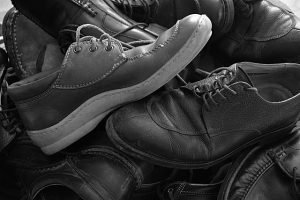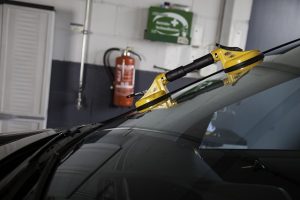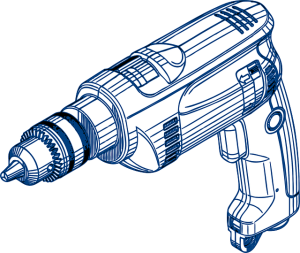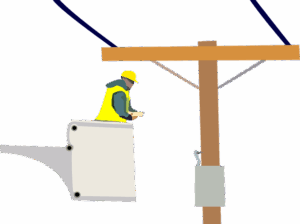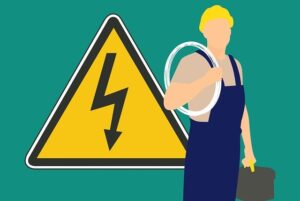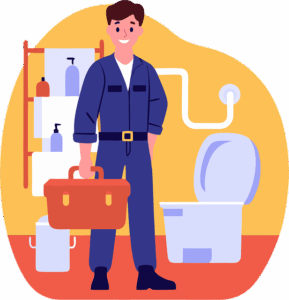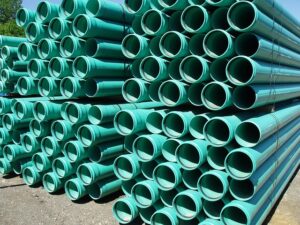Optimizing HVAC Systems: The Insulation Advantage for Enhanced Efficiency
Insulating around HVAC systems is crucial for enhancing their efficiency and reducing energy costs. Proper insulation serves as a temperature buffer, minimizing the thermal load on the system during peak times by keeping conditioned air inside and shielding against external …….

Insulating around HVAC systems is crucial for enhancing their efficiency and reducing energy costs. Proper insulation serves as a temperature buffer, minimizing the thermal load on the system during peak times by keeping conditioned air inside and shielding against external temperatures year-round. This not only boosts comfort but also extends the lifespan of the HVAC system by reducing operational strain. Effective insulation is particularly important in hot climates to prevent excess energy use to combat heat intrusion, and in cold areas to preserve indoor warmth and avoid freeze-related damages. A robust insulation envelope is essential for optimal HVAC performance, leading to significant energy savings and a more sustainable environment. Regular maintenance, including insulation checks during HVAC repair services, ensures the system's functionality and longevity, averting untimely breakdowns and ensuring consistent performance. Upgrading or correctly installing insulation can improve both existing and new HVAC systems, providing long-term savings and comfort by facilitating peak efficiency.
When it comes to optimizing your HVAC system’s performance, the strategic installation of insulation plays a pivotal role. This article delves into how maximizing HVAC efficiency is not just about the units themselves but also about their surrounding environment. By understanding the critical function insulation serves in maintaining system performance and adhering to best practices for its application around units, homeowners and technicians can significantly reduce repair needs and lower energy costs. Explore the essentials of HVAC repair mitigation through effective insulation installation and the tangible benefits it brings to your system’s longevity and efficiency.
- Maximizing HVAC Efficiency with Effective Insulation Installation
- Understanding the Role of Insulation in Maintaining HVAC System Performance
- Best Practices for Insulating Around Units to Enhance System Efficiency
- The Impact of Proper Insulation on HVAC Repair and Maintenance Needs
Maximizing HVAC Efficiency with Effective Insulation Installation

Incorporating effective insulation around HVAC units is a pivotal strategy for maximizing system efficiency and reducing energy costs. Properly installed insulation serves as a barrier against extreme temperatures, minimizing the thermal load on the HVAC system during peak times. This not only enhances comfort within the space but also significantly extends the lifespan of the HVAC equipment by moderating the demands placed upon it. During warm months, insulation helps to keep the heated air indoors and prevents the unit from working overtime to compensate for heat gain. Conversely, in colder seasons, it maintains the warmth inside and protects the system from freezing temperatures, which are often a precursor to costly HVAC repairs due to damage from frost or ice expansion. By creating an effective insulation envelope, homeowners can ensure their HVAC systems operate at peak efficiency, leading to energy savings and a more sustainable environment. Regular maintenance checks, including insulation inspection, should be part of a comprehensive approach to preserving the functionality and longevity of HVAC systems, thereby avoiding unnecessary repairs and ensuring optimal performance year-round.
Understanding the Role of Insulation in Maintaining HVAC System Performance

Proper insulation plays a pivotal role in maintaining the efficiency and performance of HVAC systems. It acts as a barrier to temperature extremes, reducing the strain on heating and cooling units during peak seasons. By preventing the transfer of hot and cold air between living spaces and the outdoors, insulation helps in maintaining consistent indoor temperatures. This not only enhances comfort for occupants but also significantly reduces the energy consumption of HVAC systems, leading to lower utility bills and less wear and tear on components, which can necessitate fewer HVAC repair interventions over time.
The quality and quantity of insulation are critical factors that influence the overall efficiency of an HVAC system. Effective insulation materials, when installed correctly around units, create a more stable environment for them to operate within. This stability allows the HVAC system to function optimally without working excessively hard to achieve desired temperatures. Additionally, when insulation is upgraded or adequately installed in buildings, it can complement the performance of newer, energy-efficient HVAC systems, ensuring that the investment in such equipment yields optimal results. It’s a symbiotic relationship where both the insulation and the HVAC system contribute to each other’s enhanced effectiveness, ultimately leading to improved comfort and reduced operational costs for homeowners and businesses alike.
Best Practices for Insulating Around Units to Enhance System Efficiency

When improving system efficiency through HVAC repair and enhancement, proper insulation around units is paramount. Insulating around HVAC units effectively can significantly reduce energy consumption and improve overall system performance. The key to maximizing the benefits of insulation lies in understanding the specific needs of your HVAC system and the environment it operates in. Utilize materials with high R-values, as they offer superior thermal resistance, thereby minimizing heat transfer to or from the unit. Ensure that all gaps and spaces around the units are thoroughly sealed, as this can otherwise lead to energy loss. It’s also crucial to consider the positioning of the insulation; it should be installed in a way that shields the unit from extreme temperatures and direct sunlight, which can cause unnecessary strain on the HVAC system during operation.
In addition to selecting the right materials and installing them correctly, regular maintenance checks are essential to maintain the integrity of the insulation over time. This includes monitoring for any signs of wear or damage that could compromise its effectiveness. Furthermore, when engaging in HVAC repair work, it’s wise to inspect and update insulation as needed, especially after significant weather events that may have loosened or compromised previous insulation efforts. By adhering to these best practices for insulating around units, homeowners and businesses alike can enhance system efficiency, leading to energy savings and a more comfortable indoor environment year-round.
The Impact of Proper Insulation on HVAC Repair and Maintenance Needs

Insulation plays a pivotal role in the efficiency and longevity of HVAC systems by creating a protective barrier between the conditioned space and external environmental factors. Properly insulating units, particularly around ductwork and mechanical components, significantly reduces the transfer of heat and cold into or out of the building envelope. This thermal break helps maintain stable temperatures within the structure, which in turn leads to less strain on HVAC systems. As a result, the frequency of repairs is diminished since critical components are less likely to experience extreme temperature fluctuations that can cause wear and tear. Additionally, when units are well-insulated, they operate more efficiently, consuming less energy to achieve desired comfort levels. This not only reduces energy costs for building owners but also extends the life of the HVAC system by minimizing the demand on its components. Regular maintenance becomes more predictable and less urgent when insulation is optimal, as the system’s performance is better preserved over time. Consequently, addressing insulation needs early on can mitigate future repair costs and ensure that the HVAC system functions at peak performance throughout its operational lifespan.
Effective insulation around HVAC units plays a pivotal role in bolstering system efficiency, a critical aspect for maintaining optimal performance and reducing energy consumption. By adhering to the best practices outlined in this article, homeowners and professionals can significantly mitigate the need for frequent HVAC repairs, leading to cost savings and a more sustainable environment. The importance of proper insulation not only enhances system efficiency but also contributes to a more comfortable living space year-round. Implementing these strategies will ensure that your HVAC system operates at its best, ultimately extending its lifespan and reliability.
